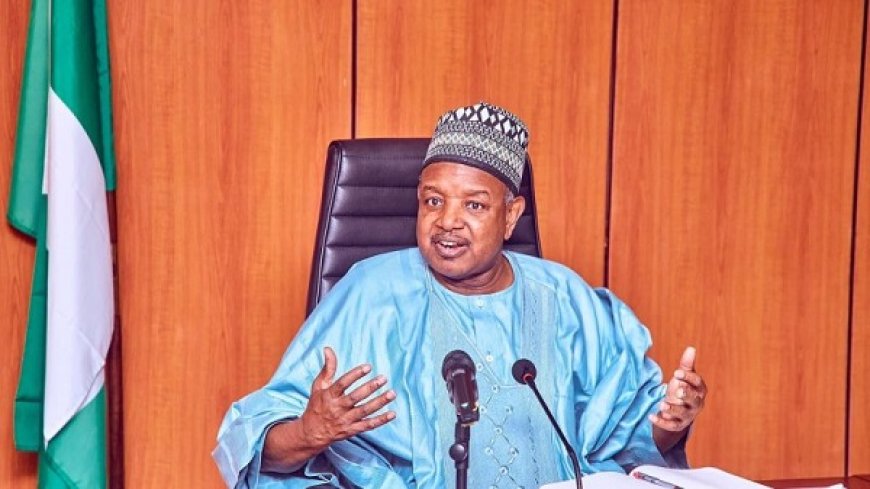World Bank drives more budget allocations to critical sectors

Minister of Budget and Economic Planning, Sen Abubakar Bagudu, has revealed that the Programme-for-Results (PforR) instrument of the World Bank has enabled the National Assembly and state governments to approve funding and allocate more budgets to critical sectors of the economy.
Speaking in Abuja yesterday during a courtesy visit by a delegation from Senegal’s Ministry of Health and Social Action, Bagudu said the instrument has also demonstrated the value of government spending and strengthened delivery of social amenities to Nigerians.
“The Programme-for-Results instrument has enabled the National Assembly and the States to approve funding and allocate more budgets to critical sectors of the economy. It has equally shown the value of spending,” Bagudu said.
The Minister added that another significant advantage of the PforR initiative is that it has fostered collaboration across ministries, which has helped the government achieve the objectives of different result areas.
“Another benefit of this instrument is the enhanced cooperation between ministries, which has ensured that the objectives of the result areas are achieved and that services are delivered more effectively,” he stated.Introduced in Nigeria in 2015, the World Bank’s Programme-for-Results is a fiduciary strengthening instrument designed to improve accountability, transparency, and sustainable programme delivery at both federal and state levels.
Bagudu noted that Nigeria has successfully implemented several PforR initiatives in the areas of health, governance, and economic empowerment. He listed examples such as the Saving One Million Lives (SOML), the Nigerian Community Action for Resilience (NG-CARES), and the Human Capital Opportunities for Prosperity and Equality (HOPE) Education, Governance and Health programmes.
Earlier, the leader of the Senegalese delegation, Dr. Abibou Ndiaye, Technical Advisor at Senegal’s Ministry of Health, said the team was in Nigeria to learn from its implementation of the Programme-for-Results and draw lessons from the country’s experiences.
“We are here to benefit from Nigeria’s experiences in executing PforR programmes, including the successes and challenges encountered,” Ndiaye said.
During the meeting, project coordinators from the Ministry of Budget and Economic Planning gave the delegation an overview of Nigeria’s various PforR projects, explaining their design, impact, and sustainability measures.
The Senegalese Ministry of Health and Social Action delegation is currently on a study tour to Nigeria to examine the country’s approaches, pitfalls, and achievements in implementing World Bank-supported Programmes-for-Results.
World Bank drives more budget allocations to critical sectors - The Nation Newspaper









